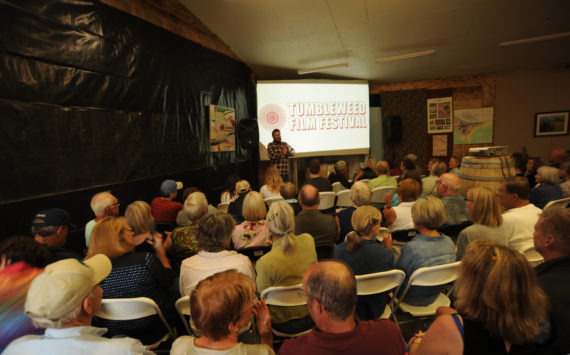Opinion by Rep. Joel Kretz & Rep. Shelly Short
Seventh Legislative District, Washington State
Wolf conflict in America is a century old tradition with the recent ground zero centered in Northeast Washington. We represent the 7th Legislative District, currently home to 15 of the 19 confirmed wolf packs in Washington. In other words, one legislative district, out of 49 statewide, houses over 75% of the confirmed packs in Washington. For us, the impact isn’t theoretical, it is real, intense and immediate. Historically, the pendulum has taken radical swings, from a goal of complete eradication in the past century, to currently conferring virtual sainthood status upon wolves, in some circles. We believe neither extreme is realistic, and hope that we can do better…


To be blunt, wolf recovery has not been popular in NE Washington, and it’s much deeper than simply a wolf advocate versus cattleman conflict. Our communities fear that our whole culture, our largely rural, pastoral way of life is on the verge of disappearing. Until those very real fears are recognized, validated and respected there will be no resolution to the wolf conflict.
We do feel there’s a grudging but growing acceptance to the notion of coexisting with wolves on a managed basis. There is willingness to explore nonlethal deterrents as long as they are practical and effective, as opposed to ineffectual, bureaucratic hoops to jump through. But there is one nonnegotiable sticking point where there has been a little lip service but no agreement in the past. When a pack of wolves does not respond to reasonable nonlethal deterrents and becomes a chronic threat, it must be removed. Period. There will be no social acceptance in rural Washington without that.
In early 2015, we got a glimmer of hope. During a meeting with several influential environmental groups, they stated that as much as they hated the idea of a single wolf dying, they realized that there were times that it was necessary, and they said as long as nonlethal deterrents were used first they would defend that publicly. Now remember, these were the same groups that we and our predecessors had been in a running gun battle with on a wide range of issues for decades….. And as past events indicate future trends, we cynically predicted that when things got tough they would bail, or another environmental group would sue. They replied that this was a position their boards had taken and that they were willing to stand and take the heat. I don’t recall a feeling of great optimism, but it cracked open a door…


Now fast forward to August 2016 and the unfortunate situation playing out in Ferry County as we speak. We’re not going to get into all the reasons or the history, it’s a complex situation that’s begs for more than thirty second sound bites. But we think all factions will agree, it is a tragic situation, and all sides lose. Earlier this month, the depredations on livestock met, and then exceeded the bar laid out in the Wolf Plan to trigger lethal removal. Having been down this road before, our local communities, ranchers, and WDFW staff braced for the inevitable onslaught of death threats, vile acts of intimidation, offensive editorials and inflammatory comments. Crickets… Then a statement from the same environmental groups noting that while they were heartbroken at the death of a wolf, they recognized that it was sometimes necessary and that they were backing WDFW and the lethal removal protocol. This was unprecedented, and we saw a glimmer of hope in the eyes of our neighbors, for the first time in years. Given the history here, this isn’t an easy thing to say, but we believe in giving credit where credit’s due, and we deeply appreciate these groups efforts to find common ground.
Unfortunately, within a few days, others chose to inflame a complex, difficult situation threatening thousands of hours of hard work and real progress. We believe there has been too much progress made to allow the discussion to be dominated by extremist views, from all sides. We have hope that there is a path to stable wolf populations that also promote a vibrant ranching culture and thriving rural communities. And as long as those goals are fundamental to the discussion, we welcome a public lands grazing conversation. These issues have been dominated for years by various factions lobbing verbal grenades resulting in vilification of good people and unacceptable stalemate. There is a tenuous path forward to balanced solutions that hinges on respect for values of others. We believe it’s worth a try.





